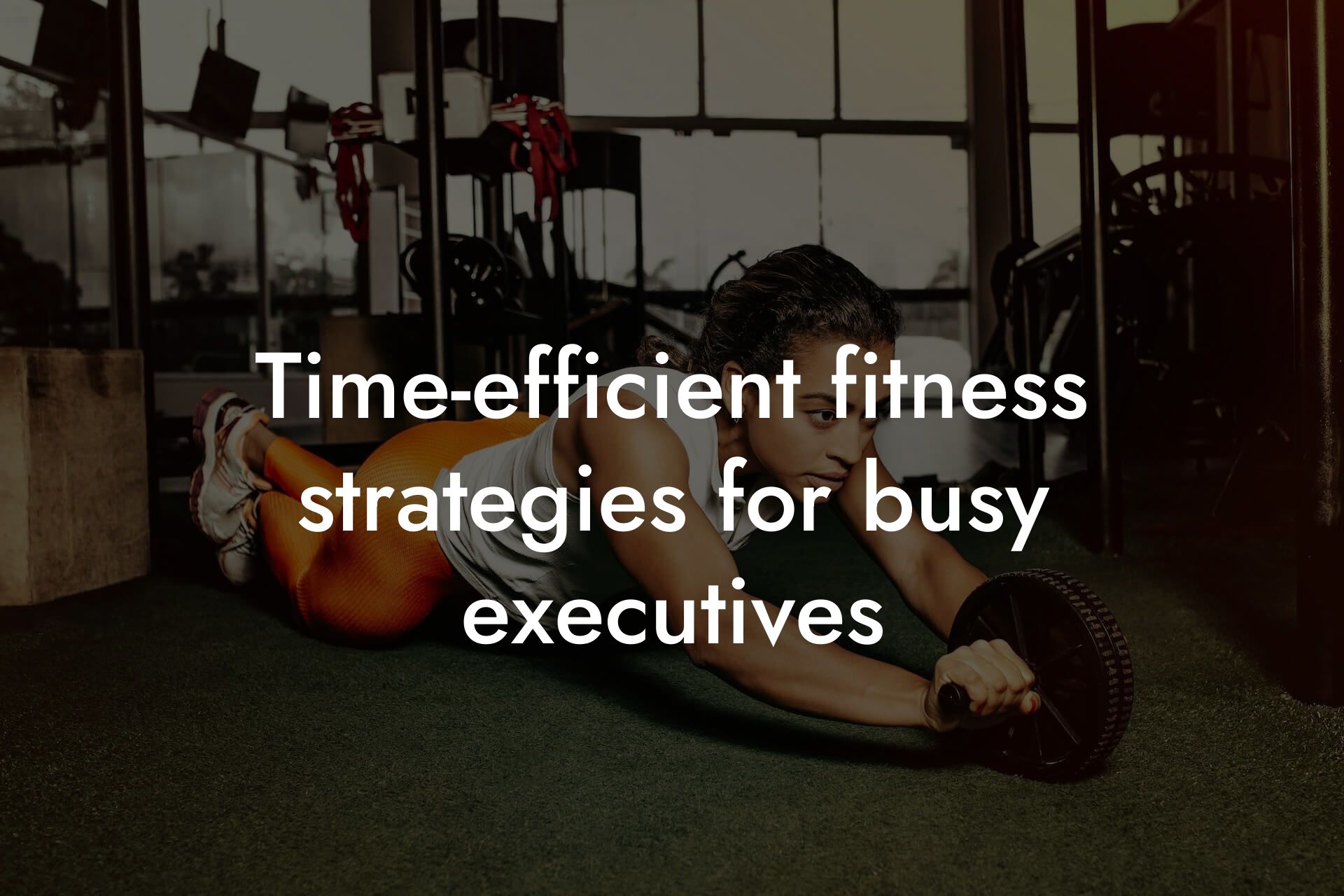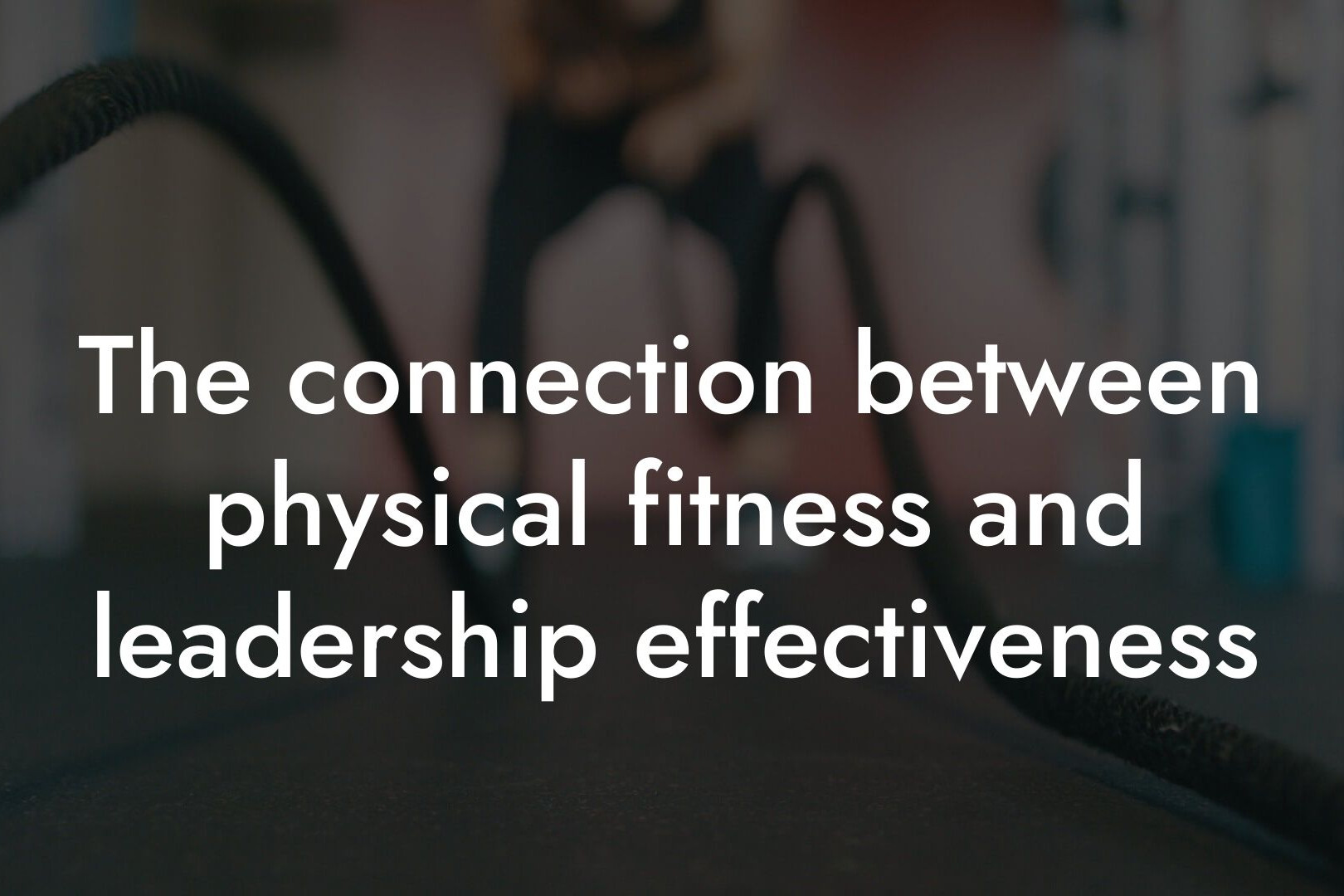As a high-earning professional, you're no stranger to stress and pressure. The demands of your job can be overwhelming, and it's easy to feel like you're constantly running on a treadmill with no end in sight. But what if you could build resilience and thrive in the face of adversity? In this article, we'll explore the importance of resilience in high-pressure roles and provide you with practical strategies to help you cope with stress and perform at your best.
Table of Contents
- The Importance of Resilience in High-Pressure Roles
- The Consequences of Burnout
- Strategies for Building Resilience
- Self-Awareness and Emotional Intelligence
- Reframe Negative Thoughts
- Build a Support Network
- Prioritize Self-Care
- Learn to Say No
- Embrace Failure and Learn from Mistakes
- Frequently Asked Questions
The Importance of Resilience in High-Pressure Roles
Resilience is the ability to withstand or recover quickly from difficult conditions. In high-pressure roles, resilience is crucial for success. When you're resilient, you're better equipped to handle the inevitable setbacks and challenges that come with the job. You're more likely to bounce back from failures, adapt to change, and maintain your performance even in the face of adversity.
But resilience isn't just about surviving; it's also about thriving. When you're resilient, you're more likely to experience a sense of purpose, motivation, and fulfillment in your work. You're more likely to take risks, innovate, and push yourself outside of your comfort zone. And when you're resilient, you're more likely to build strong relationships with your colleagues and clients, which can lead to greater success and opportunities.
The Consequences of Burnout
On the other hand, when you're not resilient, you're more likely to experience burnout. Burnout is a state of emotional, mental, and physical exhaustion caused by prolonged stress, overwork, and lack of balance. When you're burned out, you may feel exhausted, demotivated, and disconnected from your work. You may struggle to concentrate, make decisions, and perform at your best.
Burnout can have serious consequences for your career and overall well-being. It can lead to decreased productivity, increased absenteeism, and higher turnover rates. It can also affect your physical health, causing headaches, stomach problems, and cardiovascular disease. And if left unchecked, burnout can lead to depression, anxiety, and other mental health issues.
Strategies for Building Resilience
So, how can you build resilience in high-pressure roles? Here are some practical strategies to get you started:
Self-Awareness and Emotional Intelligence
The first step to building resilience is to develop self-awareness and emotional intelligence. This means understanding your strengths, weaknesses, values, and emotions. It means recognizing when you're feeling stressed, anxious, or overwhelmed, and taking steps to manage those emotions.
One way to develop self-awareness and emotional intelligence is through mindfulness practices such as meditation, deep breathing, or journaling. These practices can help you become more aware of your thoughts, feelings, and bodily sensations, and respond to them in a more intentional way.
Reframe Negative Thoughts
Another strategy for building resilience is to reframe negative thoughts. When you're faced with a challenge or setback, it's easy to fall into negative thinking patterns such as catastrophizing, black-and-white thinking, or personalization. But these patterns can be damaging to your mental health and performance.
Instead, try to reframe negative thoughts in a more positive and realistic way. Ask yourself questions like "What can I learn from this experience?" "What opportunities does this present?" or "What strengths do I have that can help me overcome this challenge?"
Build a Support Network
Building a support network is crucial for resilience in high-pressure roles. This means surrounding yourself with people who can offer emotional support, guidance, and encouragement. It means having a network of colleagues, friends, and family members who can help you navigate challenging situations and provide a fresh perspective.
One way to build a support network is to join a professional organization or networking group. This can provide you with access to like-minded individuals who understand the challenges of your role. You can also seek out mentors or coaches who can offer guidance and support.
Prioritize Self-Care
Prioritizing self-care is essential for resilience in high-pressure roles. This means taking care of your physical, emotional, and mental health. It means getting enough sleep, exercising regularly, and eating a healthy diet. It means taking breaks, practicing relaxation techniques, and engaging in activities that bring you joy and fulfillment.
One way to prioritize self-care is to schedule it into your daily or weekly routine. This might mean setting aside time for meditation, yoga, or reading. It might mean taking a walk during your lunch break or practicing gratitude journaling before bed.
Learn to Say No
Learning to say no is a critical skill for resilience in high-pressure roles. When you're constantly taking on too much, you can become overwhelmed and burned out. But when you learn to say no, you can prioritize your tasks, focus on what's truly important, and maintain your energy and motivation.
One way to learn to say no is to practice assertive communication. This means being clear, direct, and respectful in your communication. It means saying no without feeling guilty or apologetic. It means setting boundaries and prioritizing your own needs and goals.
Embrace Failure and Learn from Mistakes
Finally, embracing failure and learning from mistakes is essential for resilience in high-pressure roles. When you're afraid of failure, you can become risk-averse and stagnant. But when you're willing to take risks and learn from your mistakes, you can grow, innovate, and thrive.
One way to embrace failure is to reframe it as an opportunity for growth and learning. Ask yourself questions like "What can I learn from this experience?" "What would I do differently next time?" or "What strengths do I need to develop to overcome this challenge?"
Building resilience in high-pressure roles is crucial for success. It means developing self-awareness and emotional intelligence, reframing negative thoughts, building a support network, prioritizing self-care, learning to say no, and embracing failure and learning from mistakes. By implementing these strategies, you can thrive in the face of adversity, maintain your performance, and achieve your goals.
At Tano Performance Group, we understand the demands of high-pressure roles. That's why we offer comprehensive body assessments using our state-of-the-art DEXA machine. Our assessments provide you with a detailed understanding of your body composition, bone density, and physique, giving you the information you need to optimize your performance and achieve your goals. Contact us today to learn more about how we can help you build resilience and take your career to the next level.
Frequently Asked Questions
What is resilience, and why is it important in high-pressure roles?
Resilience refers to the ability to withstand or recover quickly from difficult conditions, challenges, or setbacks. In high-pressure roles, resilience is crucial because it enables individuals to perform at their best even under intense stress, pressure, or uncertainty. It helps them to bounce back from failures, adapt to change, and maintain their physical and mental well-being.
How does stress affect performance in high-pressure roles?
Chronic stress can significantly impair performance in high-pressure roles by affecting cognitive function, decision-making, and emotional regulation. It can lead to decreased productivity, increased errors, and strained relationships with colleagues and clients. Moreover, prolonged stress can result in burnout, which can have severe consequences for one's career and overall well-being.
What are some common signs of burnout in high-pressure professionals?
Common signs of burnout in high-pressure professionals include chronic fatigue, insomnia, digestive problems, mood swings, irritability, cynicism, and reduced motivation. They may also experience physical symptoms like headaches, muscle tension, and a weakened immune system. If left unaddressed, burnout can lead to more severe mental health issues, such as depression and anxiety disorders.
How can high-pressure professionals prioritize their physical health?
Prioritizing physical health is essential for building resilience in high-pressure roles. This can be achieved by maintaining a balanced diet, staying hydrated, engaging in regular exercise, and getting sufficient sleep. High-pressure professionals should also prioritize self-care activities, such as meditation, yoga, or other relaxation techniques, to help manage stress and anxiety.
What role does nutrition play in building resilience?
Nutrition plays a critical role in building resilience by providing the necessary fuel for optimal physical and mental performance. A well-balanced diet rich in whole foods, fruits, vegetables, and lean proteins can help to support energy levels, mood regulation, and cognitive function. Conversely, a diet high in processed foods, sugar, and unhealthy fats can exacerbate stress and anxiety.
How can high-pressure professionals manage their workload effectively?
Effective workload management is critical for building resilience in high-pressure roles. This can be achieved by prioritizing tasks, setting realistic goals, and avoiding overcommitting. High-pressure professionals should also learn to delegate tasks, take regular breaks, and establish clear boundaries with colleagues and clients to maintain a healthy work-life balance.
What is the importance of social support in building resilience?
Social support from colleagues, friends, and family is essential for building resilience in high-pressure roles. Having a strong support network can provide emotional comfort, practical help, and valuable advice during challenging times. High-pressure professionals should prioritize building and maintaining strong relationships to help them cope with stress and adversity.
How can mindfulness and meditation help build resilience?
Mindfulness and meditation can help build resilience by reducing stress, anxiety, and emotional reactivity. These practices can improve emotional regulation, increase self-awareness, and enhance cognitive function. Regular mindfulness and meditation practice can also improve sleep quality, boost mood, and increase feelings of calm and relaxation.
What are some effective stress-reduction techniques for high-pressure professionals?
Effective stress-reduction techniques for high-pressure professionals include deep breathing exercises, progressive muscle relaxation, visualization, and journaling. They can also benefit from engaging in physical activity, such as yoga or tai chi, to help reduce stress and anxiety.
How can high-pressure professionals maintain a healthy work-life balance?
Maintaining a healthy work-life balance is critical for building resilience in high-pressure roles. This can be achieved by setting clear boundaries, prioritizing personal time, and engaging in activities that bring joy and fulfillment outside of work. High-pressure professionals should also learn to disconnect from work-related tasks and responsibilities during non-work hours.
What are some common myths about resilience in high-pressure roles?
Common myths about resilience in high-pressure roles include the notion that resilience is an innate trait, that it's a sign of weakness to show emotions, or that resilience means being immune to stress and adversity. These myths can be harmful and discourage high-pressure professionals from seeking help or prioritizing their well-being.
How can high-pressure professionals develop a growth mindset?
Developing a growth mindset is essential for building resilience in high-pressure roles. This can be achieved by embracing challenges, viewing failures as opportunities for growth, and focusing on learning and development. High-pressure professionals should also prioritize self-reflection, seek feedback from others, and be open to change and adaptation.
What is the role of self-compassion in building resilience?
Self-compassion is critical for building resilience in high-pressure roles. It involves treating oneself with kindness, understanding, and acceptance, particularly during challenging times. Self-compassion can help high-pressure professionals develop a more positive self-image, build confidence, and reduce self-criticism.
How can high-pressure professionals prioritize their mental health?
Prioritizing mental health is essential for building resilience in high-pressure roles. This can be achieved by seeking professional help when needed, practicing self-care, and engaging in activities that promote relaxation and stress reduction. High-pressure professionals should also prioritize social connections, build a support network, and take regular breaks to reduce stress and anxiety.
What are some effective strategies for managing anxiety in high-pressure roles?
Effective strategies for managing anxiety in high-pressure roles include cognitive-behavioral therapy, medication, and relaxation techniques such as deep breathing, progressive muscle relaxation, and visualization. High-pressure professionals should also prioritize self-care, engage in regular exercise, and maintain a healthy diet to help reduce anxiety.
How can high-pressure professionals build a support network?
Building a support network is critical for building resilience in high-pressure roles. This can be achieved by identifying trusted colleagues, friends, and family members who can provide emotional support, practical help, and valuable advice. High-pressure professionals should also consider joining professional networks or support groups to expand their support network.
What is the importance of self-awareness in building resilience?
Self-awareness is essential for building resilience in high-pressure roles. It involves having a clear understanding of one's strengths, weaknesses, values, and emotions. Self-awareness can help high-pressure professionals identify areas for improvement, develop emotional regulation strategies, and make informed decisions that align with their goals and values.
How can high-pressure professionals develop emotional regulation strategies?
Developing emotional regulation strategies is critical for building resilience in high-pressure roles. This can be achieved by identifying and labeling emotions, recognizing emotional triggers, and developing effective coping mechanisms. High-pressure professionals should also prioritize self-reflection, seek feedback from others, and engage in relaxation techniques to help regulate their emotions.
What are some common barriers to building resilience in high-pressure roles?
Common barriers to building resilience in high-pressure roles include lack of time, inadequate support, and unrealistic expectations. High-pressure professionals may also face barriers such as perfectionism, fear of failure, and lack of control over their work environment. Identifying and addressing these barriers is essential for building resilience and achieving success in high-pressure roles.
How can high-pressure professionals measure their resilience?
Measuring resilience can be challenging, but high-pressure professionals can use various tools and assessments to gauge their resilience. These include self-report measures, such as the Connor-Davidson Resilience Scale, and behavioral observations, such as tracking coping strategies and stress levels. Regular self-reflection and feedback from others can also provide valuable insights into one's resilience.
What are some effective strategies for building resilience in teams?
Effective strategies for building resilience in teams include promoting open communication, fostering a positive work culture, and providing training and development opportunities. Teams should also prioritize social support, recognize and reward resilience, and encourage team members to prioritize their well-being.
How can high-pressure professionals maintain their resilience over time?
Maintaining resilience over time requires ongoing effort and commitment. High-pressure professionals should prioritize self-care, continue to develop their skills and knowledge, and adapt to changing circumstances. They should also seek feedback from others, engage in regular self-reflection, and make adjustments to their strategies as needed.
Here are some related articles you might love...
- The importance of DEXA scans for business leaders
- Time-efficient fitness strategies for busy executives
- The connection between physical fitness and leadership effectiveness
- Maintaining fitness during intense work travel
- The impact of body composition on executive presence
- How to integrate exercise into a packed executive schedule
- Nutrition tips for peak performance in the boardroom
- How physical fitness can boost executive decision-making
- How to manage stress and prevent burnout as a CEO
Zak Faulkner
Zak Faulkner is a leading authority in the realm of physical health and body composition analysis, with over 15 years of experience helping professionals optimise their fitness and well-being. As one the experts behind Tano Performance Group, Zak has dedicated his career to providing in-depth, science-backed insights that empower clients to elevate their physical performance and overall health.
With extensive knowledge of DEXA technology, Zak specializes in delivering comprehensive body assessments that offer precise data on body fat, muscle mass, bone density, and overall physique. His expertise enables individuals to make informed decisions and achieve their fitness goals with accuracy and confidence. Zak’s approach is rooted in a deep understanding of human physiology, combined with a passion for helping clients unlock their full potential through personalised strategies.
Over the years, Zak has earned a reputation for his commitment to excellence, precision, and client-focused service. His guidance is trusted by top professionals who demand the best when it comes to their health. Whether advising on fitness programs, nutritional strategies, or long-term wellness plans, Zak Faulkner’s insights are a valuable resource for anyone serious about taking their health and fitness to the next level.
At Tano Performance Group, Zak continues to lead our Content Team revolutionising how professionals approach their physical health, offering unparalleled expertise that drives real results.




